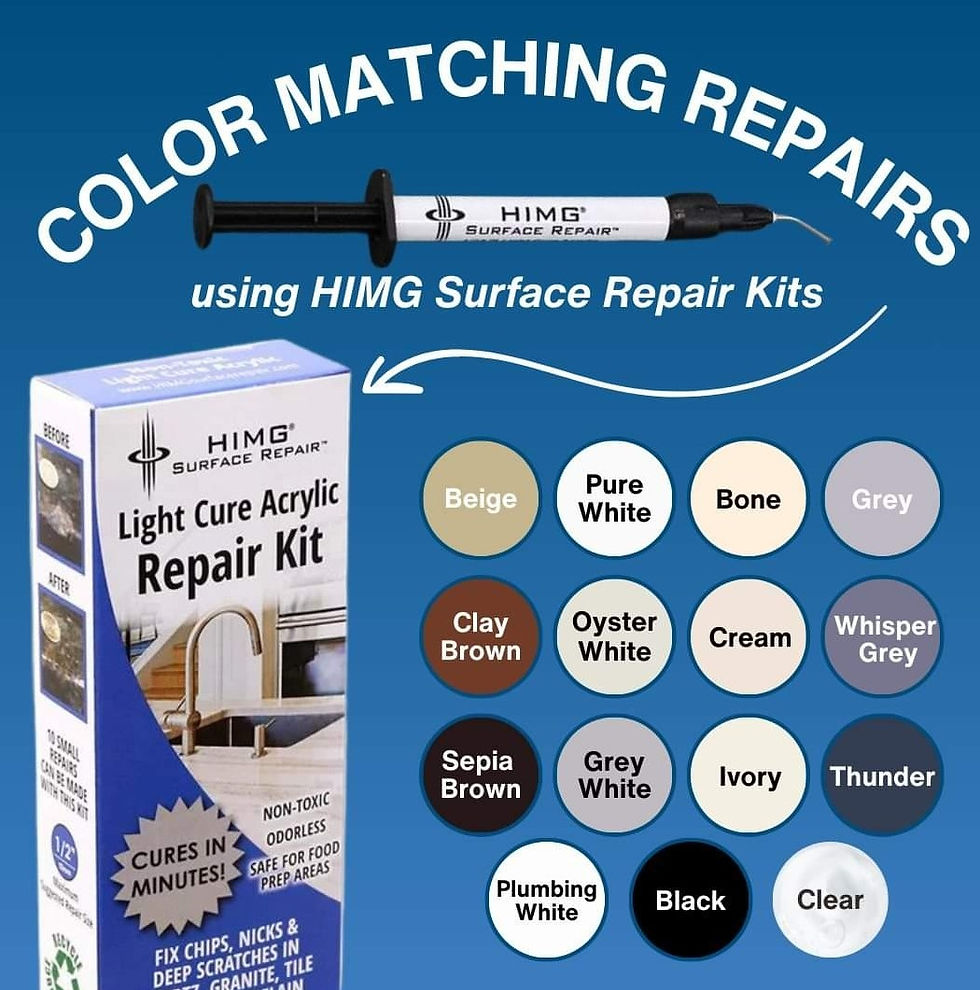Mastering Surface Repairs: Tips and Tricks for a Flawless Finish
- James .W

- Sep 3, 2023
- 2 min read
Introduction
Surfaces play a vital role in our everyday lives. Whether it's the walls in our homes, the floors beneath our feet, or the furniture we use, surfaces are the canvas upon which we live our lives. Over time, these surfaces can take a beating. They may develop cracks, scratches, or other imperfections that can detract from their beauty and functionality. But fear not! With the right tools, materials, and techniques, you can master the art of surface repairs and restore these surfaces to their former glory. In this blog post, we'll explore the fundamentals of surface repairs and provide you with valuable tips and tricks for achieving a flawless finish.
Surface Repair Basics
What is Surface Repair?
Surface repair refers to the process of restoring and renewing various types of surfaces that have been damaged or deteriorated. This can include repairing walls, floors, countertops, furniture, and more.
Why is Surface Repair Important?
Proper surface repair is essential for several reasons:
· Aesthetics: Surface repairs improve the appearance of your home or furniture, making them look newer and more attractive.
· Durability: Repaired surfaces are less likely to suffer further damage, increasing their lifespan.
· Property Value: Well-maintained surfaces can enhance the value of your property.
Tools and Materials
Before you dive into any surface repair project, it's crucial to have the right tools and materials at your disposal. Here are some essentials:
Tools: Repair kits for tiles, timber and stone or a Surface Repair Technician
Surface Assessment
Identify the Damage:
The first step in any repair project is to assess the extent of the damage. Look for cracks, holes, scratches, or other imperfections.
Decide DIY or Professional Help:
Not all repairs are suitable for DIY. Complex or structural issues may require professional assistance. Assess your skills and the complexity of the repair before starting.
Once you've mastered surface repairs, it's essential to maintain and prevent future damage. Regular cleaning and inspections can help you catch issues early and prevent costly repairs.
Conclusion
Surface repairs may seem daunting at first, but armed with the right knowledge and tools, you can transform damaged surfaces into works of art. Whether you're sprucing up your living space, restoring antique furniture, or maintaining your property, the art of surface repair is a valuable skill to have. So, roll up your sleeves, embrace the process, and enjoy the satisfaction of breathing new life into your cherished surfaces.





Comments